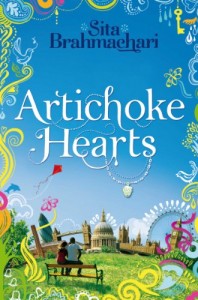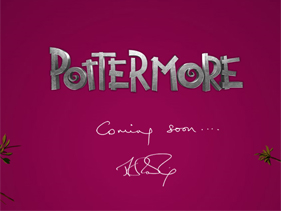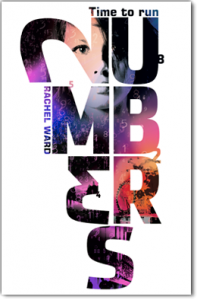Artichoke Hearts by Sita Brahmachari (Macmillan, 2011)
Teenage novel. Winner of the 2011 Waterstones’s Children’s Book Prize.
 It’s a book about colour-mixing, clashing patterns, dogs peeing on a tropical beach, painted coffins. It translates to the plot as the intermingling of terminal illness with teenage romance, constantly oscillating from energy to exhaustion and exhilaration to sadness. Told in the form of the not-quite-so-private diary of twelve-year-old Mira, the novel revolves around the gradual decline of her beloved grandmother Nana Josie, a revolutionary, imaginative, zany and slightly controlling hippie who could be the most attaching character in the novel if Mira wasn’t such an endearingly warm narrator. The story freely strays away from this original plotline, though, scattering secondary plots that sometimes lead somewhere and sometimes don’t, like the artichoke leaves of the title, but weave many more colourful characters into the tapestry. From Pat the posh, pedagogical writer and dog-walker to the beautiful and tragic young married couple waiting for death, the novel takes us through a gallery of portraits which could not be more remote from our everyday experiences while staying entirely credible.
It’s a book about colour-mixing, clashing patterns, dogs peeing on a tropical beach, painted coffins. It translates to the plot as the intermingling of terminal illness with teenage romance, constantly oscillating from energy to exhaustion and exhilaration to sadness. Told in the form of the not-quite-so-private diary of twelve-year-old Mira, the novel revolves around the gradual decline of her beloved grandmother Nana Josie, a revolutionary, imaginative, zany and slightly controlling hippie who could be the most attaching character in the novel if Mira wasn’t such an endearingly warm narrator. The story freely strays away from this original plotline, though, scattering secondary plots that sometimes lead somewhere and sometimes don’t, like the artichoke leaves of the title, but weave many more colourful characters into the tapestry. From Pat the posh, pedagogical writer and dog-walker to the beautiful and tragic young married couple waiting for death, the novel takes us through a gallery of portraits which could not be more remote from our everyday experiences while staying entirely credible.
Death is one of the most commonly tackled themes in children’s literature, and very often the portrayal of the death of a grandparent is a tear-jerking opportunity to teach the young reader about the harsh reality of our own transience. But Artichoke Hearts, although immensely sad, is not a tear-jerker; and although death is given more meaning and more stage presence in this novel than in most works of children’s literature that I’ve read, it is neither celebrated as a rite of passage or a process of maturation, nor lamented as a bitter truth of existence. In fact, far from allowing for generalisation, it is presented in all its singularity. Mira’s grandmother is like no other in the world. In her life, her death, her thoughts, her art, the artichoke charm she gives Mira, we read a unique and personal experience which does not call for universalisation.
Artichoke Hearts also presents a very tender, pitch-perfect portrayal of early teen romance. While Nana Josie is dying, Mira gets her first period, her first mobile phone and her first boyfriend. Far from both pheromone-packed hypersexualised YA and sickly-sweet love stories of pink girl-books, Mira and Jidé’s first steps into romance are gentle and loving, full of laughter and shyness and trial-and-error, firmly anchored in a world where the number of x‘s at the end of a text determines a teenager’s mood for the day, and where gossip is both longed for and feared.
Sita Brahmachari’s sensitivity in this first book is admirable. She deals with complex themes simply and gracefully, creating a resolutely modern coming-of-age story in a multifarious world. It’s a touching, fun, emotional, deep teenage novel which thoroughly deserves its award and will hopefully receive many more.
The editorial work on the book is enchanting, with a colourful cover and lovely detailed patterns introducing the chapters.
Reviewed by Clementine. Leave a comment




